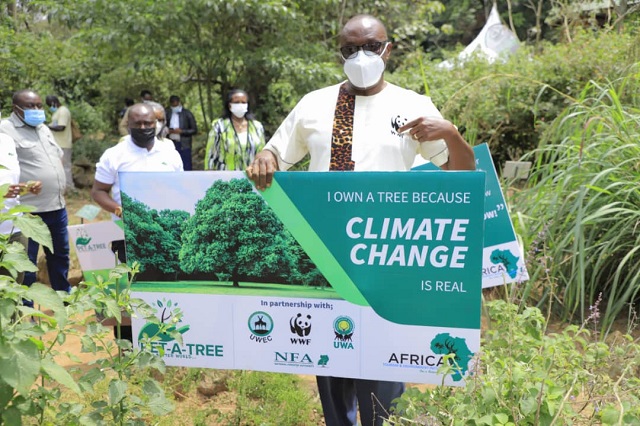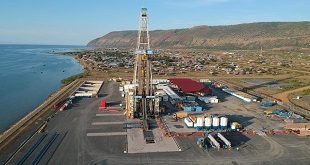
Kampala, Uganda | Patricia Akankwatsa | The World Wildlife Fund (WWF), a leading organization in wildlife conservation and endangered species has sanctioned an innovative, gender-sensitive nature-based solutions programme to reduce the impacts of climate change and poverty on communities.
The resilient and green jobs project will be implemented in the troubled Rwenzori sub-region including Bunyangabu, Kasese, Rubirizi, Bundibugyo, Ntoroko and Kabarole.
The nature-based solution seeks to reduce negative environmental impact and promote safety and ultimately leading to environmentally, economically and socially sustainable enterprises and economies, says Yonah Turinayo, WWF Coordinator for Energy and Extractives Programme.
He adds that this inclusive arrangement will also address societal challenges including poverty as well as harnessing nature’s immense potential to provide for communities’ well-being.
“These are jobs with less harm to the environment,” he said, citing interventions like bee-keeping and other biofuel substitutes to charcoal like briquettes.
Turinayo said that the Danish Family Planning Association funded programme simply focuses on the promotion of safety and improvement in energy and raw materials efficiency, minimization of waste and industrial pollution and restoration of ecosystems.
He said the 48-month programme focuses on jobs within the restoration and in sectors that reduce pressure on important natural resources for climate resilience. Key among others, he cited timber value chain, charcoal, bamboo and honey industries, adding that it will also raise awareness and capacitate the communities more prone to climate changes.
WWF Uganda Country Office will implement the project alongside Reproductive Health Uganda (RHU), key local civil society hubs, District Timber Growers Associations and The Uganda National Apiculture Development Organisation (TUNADO).
David Duli, Country Director WWF Uganda says his organization will engage the private sector actors in valuing and financing the ecosystem services.
This, he says will yield multiple benefits such as reduced climate risk on communities, improved food security and livelihood.
Others he says, the development will also reduce the most severe environmental impacts of climate related disasters, such as flooding, landslides and drought, and the subsequent long-term impact of climate change.
A description on the organisation website indicates that the programme seeks to improve livelihoods and enterprise creation within strengthened product value chains to better lives of women and youth.
 The Independent Uganda: You get the Truth we Pay the Price
The Independent Uganda: You get the Truth we Pay the Price


